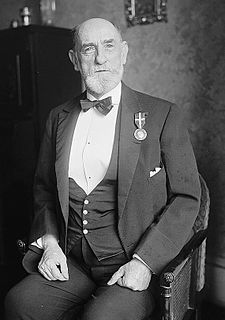A Quote by Lin Yutang
Anyone who reads a book with a sense of obligation does not understand the art of reading.
Quote Topics
Related Quotes
The other book that I worry no one reads anymore is James Joyce's Ulysses. It's not easy, but every page is wonderful and repays the effort. I started reading it in high school, but I wasn't really able to grasp it. Then I read it in college. I once spent six weeks in a graduate seminar reading it. It takes that long. That's the problem. No one reads that way anymore. People may spend a week with a book, but not six.
Next to praying there is nothing so important in practical religion as Bible reading. By reading that book we may learn what to believe, what to be, and what to do; how to live with comfort, and how to die in peace.” Happy is that man who possesses a Bible! Happier still is he who reads it! Happiest of all is he who not only reads it, but obeys it, and makes it the rule of his faith and practice!
I'm no longer religious, but the Bible fascinates me. Hardly anyone reads it anymore, but it's got everything: it's a book of poetry, it's a book of principle, it's a book of stories, and of myths and of epic tales, a book of histories and a book of fictions, of riddles, fables, parables and allegories.
A good book deserves an active reading. The activity of reading does not stop with the work of understanding what a book says. It must be completed by the work of criticism, the work of judging. The undemanding reader fails to satisfy this requirement, probably even more than he fails to analyze and interpret. He not only makes no effort to understand; he also dismisses a book simply by putting it aside and forgetting it. Worse than faintly praising it, he damns it by giving it no critical consideration whatever.
Reading is sometimes thought of as a form of escapism, and it’s a common turn of phrase to speak of getting lost in a book. But a book can also be where one finds oneself; and when a reader is grasped and held by a book, reading does not feel like an escape from life so much as it feels like an urgent, crucial dimension of life itself.
The fact that for a long time Cubism has not been understood and that even today there are people who cannot see anything in it means nothing. I do not read English, an English book is a blank book to me. This does not mean that the English language does not exist. Why should I blame anyone but myself if I cannot understand what I know nothing about?" -Pablo Picasso.
I read continually and don't understand writers who say they don't read while working on a book. For a start, a book takes me about two years to write, so there's no way I am depriving myself of reading during that time. Another thing is that reading other writers is continually inspiring - reading great writers reminds you how hard you have to work.







































